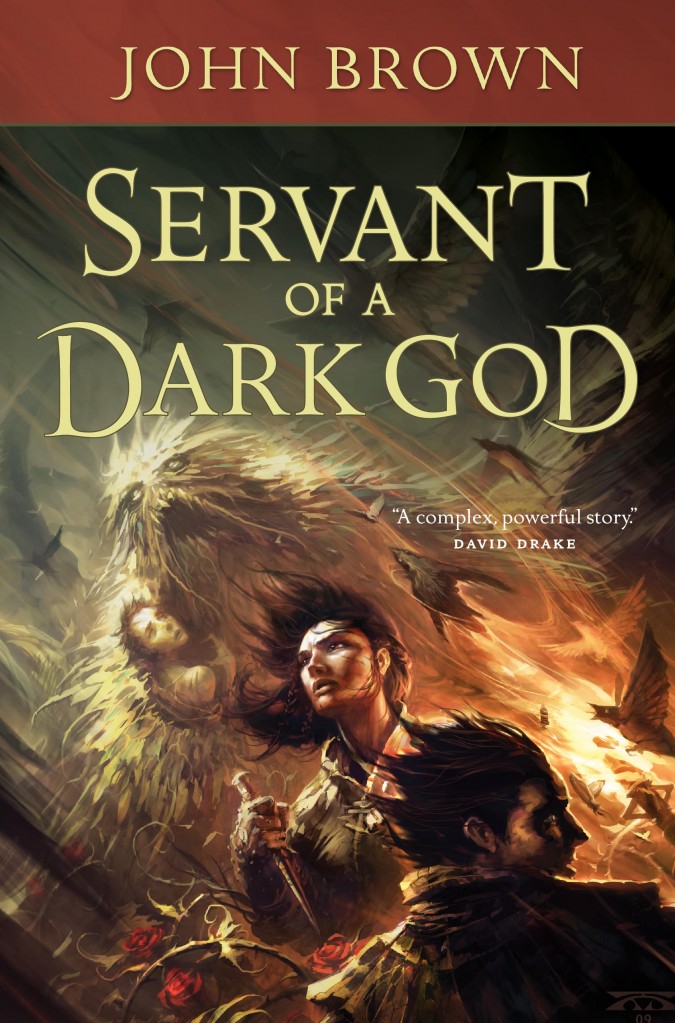Books roundup
Books read recently:
- Tim Powers, On Stranger Tides: In the last days of piracy, Jack Shandy is forced to join the crew of pirate Phil Davies–never suspecting that this will lead him on an adventure on the high seas in search of the fabled Fountain of Youth, nor that his path will cross that of Blackbeard, voodoo sorcerers, and a nefarious Oxford professor. As always with Powers, tremendous fun underpinned by a tremendous sense of history and myth. The use of voodoo magic and of the Spanish myths of the Fountain of Youth is particularly effective, and it all comes to an awesome ending. (my favourite character died about halfway through the book, but that didn’t prevent me from enjoying the rest of the story)
This is the one that was officially optioned by Disney for Pirates of the Carribbean IV. At the very least, it should have cool plot elements, if they don’t make too much of a mess out of it. - Alastair Reynolds, Revelation Space. Humanity has taken to the stars, and seeded faraway worlds such as Yellowstone and Sky’s Edge. On the isolated planet of Resurgam, archeologist Dan Sylveste conducts research into the extinct race of the Amarantin, extinguished by a freak sun flare before their civilisation could achieve spaceflight. But, unbeknown to him, plans are already afoot to dispatch him–for the truth that lies on Resurgam is far too dangerous to come into the light of the day…
Written before, but set after the events of Chasm City (and having a cameo by Chasm City‘s main character), it essentially follows the same progression of unravelling a central mystery–this time much bigger-scale than Chasm City. Who or what is moving the various factions around Sylveste? Why did the Amarantin die? And who is Sun Stealer, the shipbound entity that drives people mad? The end did feel like it dragged on for slightly too long, but the worldbuilding is masterful, and the plot is impressively constructed and orchestrated. And it was Reynolds’ first novel, too. I am in awe. (and will go look for subsequent volumes in the series). - Valerio Evangelisti, Cherudek (French translated from Italian): a really oddball novel, part fantasy, part historical, part SF. The main part is set in 14th-century France, and features pitiless main character Nicolas Eymerich, Grand Inquisitor of Aragon, who has to investigate the odd massacre of English troops by what seems like resurrected zombies. Another thread follows three Jesuits investigating a 20th-Century sleepy Italian city, where bleeding insects and burning men seem to be common hallucinations. And the final one is the narrator, stuck outside of space in some kind of eternal torment. It all comes together in the end, rather efficiently.
It’s the sort of thing you tend to read in horrified fascination more than out of any real empathy: Eymerich seems to have few emotions except anger, which makes it hard to care for him, and the real tension is figuring out how the threads of the narrative fit together. Much less efficient than the Reynolds in this matter, though: Reynolds’s characters are not his strongest suit, but they are at least sympathetic; here, Eymerich is really a cool, efficient and intolerant bastard. The book, however, is full of neat if dark ideas, which form a strong part of its appeal; and Eymerich’s foil Father Corona ended up drawing most of this reader’s sympathy (I suspect part of the reason the other threads exist at all, other than for structural reasons, is because they feature other characters, far more sympathetic than Eymerich; he’s the kind of character you don’t really want to be with for long). Part of a very successful series in Europe, but I’m not really sure I can stomach another one of those.







